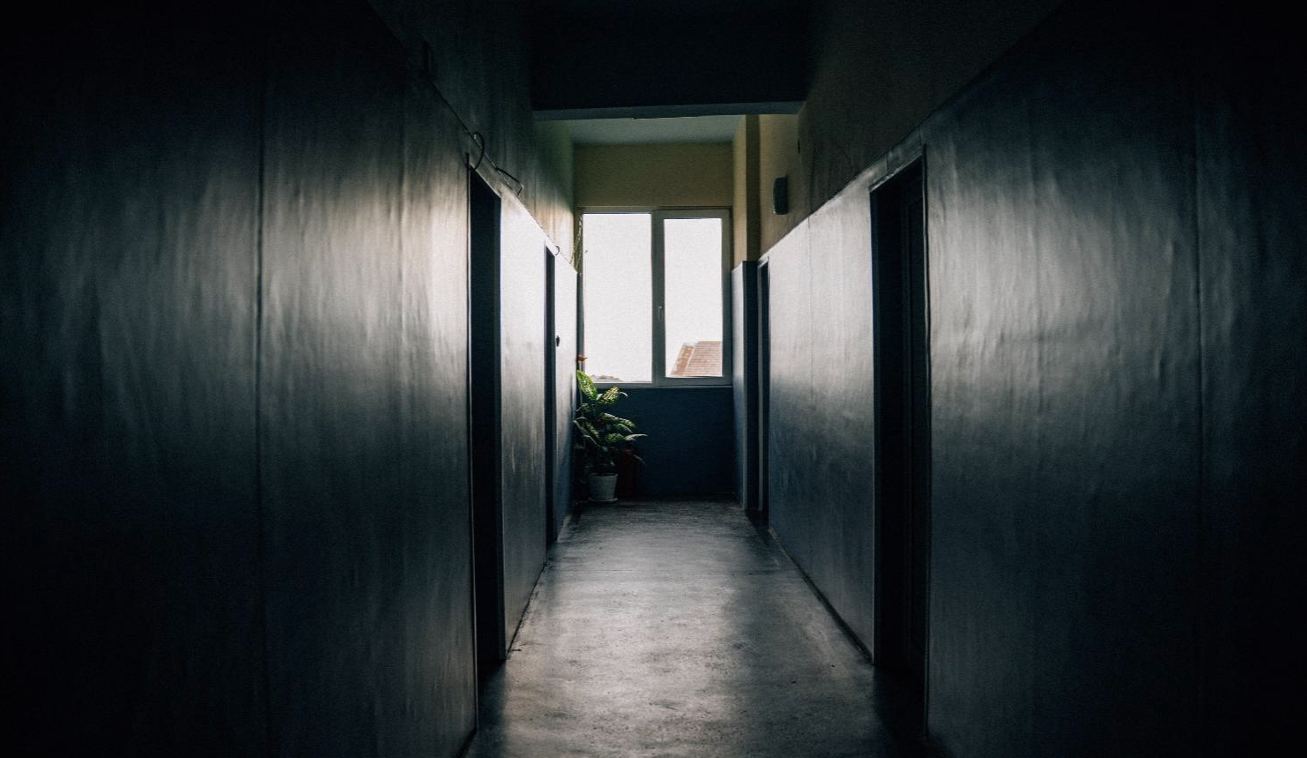My experience of disability was shaped, initially, by my personal experience of impairment. Before the introduction to disability politics, my overall perspective was one rooted in the individual model of disability, wrapped in a tragedy narrative. I was ashamed of identifying as a disabled person, professionals and practitioners encouraged me to be passive and dependent, and I desired finding and becoming “normal”. When my family were introduced to the social model of disability, I started to read and become familiar with the words and ideas of key activists within the Disabled People’s Movement, and prominent scholars within Disability Studies. As a teenager, I immersed myself in the writings of Jenny Morris, Jane Campbell, Michael Oliver, Adolf Ratzka, and Colin Barnes.
I realised that to identify as a disabled person, I was to become a political subject. I was to recognise the subjugation of disabled people by those who influenced and exerted control over the way society is organised. The illusion of “normality” was shattered, it did not exist – yet, people spoke to me as if it did. I was told often, notably by non-disabled people, to try and fit in to the existing social world. The messages were clear and repetitive: don’t cause disruption, don’t resist, professionals are better informed to know your needs, and do as much as you can by yourself.
By this point, I had started to challenge these ideas. To identify as a disabled person, I needed to focus on the notion of power – who has power, how is it exerted, what can be achieved, and how can it be resisted? I questioned how the various structures within society contributed towards disabled people’s marginalisation; what aspects of political, economic, social, and cultural structures denied disabled people participation and access to their communities? There was one question, though, that kept penetrating my thoughts: will we, disabled people, know when we have realised emancipation? On reflection, this initial period of challenging disabled people’s marginalisation was important for two reasons: firstly, I was starting to feel liberated. No longer was I to blame for my experience of injustice, the demands to change no longer fell on my shoulders but on those who influence the organisation of the social world, and those who tolerate – indeed, accept – the everyday injustices experienced by communities across the globe. Secondly, I was starting to realise that there was a common thread within the lives of disabled activists and Disability Studies scholars, our commonality came from recognising that the social world had to change, it had to bend to the demands of the Disabled People’s Movements across the globe and be founded on the principles of: inclusion, accessibility, and justice.
I needed to be better informed on disabled people’s experiences, as well as pursue knowledge on how the social world is organised. At the University of Liverpool, England, I obtained an undergraduate degree in psychology. I hated it. The emphasis was on biology, and most of my studies centred upon objectifying people considered “different” from the expected norm; prioritising the individual over the collective. Whilst at university, I became more involved in disability politics – primarily at the youth level. Working with influential figures, such as Zara Todd, I primarily contributed to demands and campaigns surrounding young disabled people’s access to self-directed support, and developing an inclusive education agenda. I also, regrettably, started to engage with traditional disability charities. Those that were not controlled, nor led, by disabled people. They reinforced narratives of tragedy, calling on audiences to pity disabled people. I began to advise these charities, contribute to the delivery of their campaigns, and talk about the importance of charity. This was a terrible mistake, and illustrates the point that disabled people can actively contribute towards the marginalisation and oppression of disabled people.
Moving away from these traditional charities, I became involved in disabled people’s organisations in the UK and across Europe. I joined the European Network on Independent Living at their Freedom Drives, and I started supporting the work of organisations, such as, the Alliance for Inclusive Education. At 17, I became a confidential and strategic adviser to the UK Government. My involvement was part of the Equality 2025 network, set up by the New Labour administration. I served two, three year terms, and was Deputy Chair during the second term. The majority of my time was spent advising on health service policies, delivery of social care, and increasing accessibility to the labour market. I was part of the UK delegation to attend the signing ceremony for the United Nations Convention on the Rights of Persons with Disabilities in New York, 2007. Equality 2025 was disbanded after six years, under the Conservative and Liberal Democrat coalition. During this time, I met prominent disabled activists and campaigners who have shaped my ideas and understanding of disability and emancipation: Clenton Farquharson, Michelle Daley, Tara Flood, Simone Aspis, Rachel Perkins, Nick Danagher, and Rowan Jade, to name but a few.
During my time on the Equality 2025 network, I realised the importance of engaging with social policy analysis. Disabled people’s lives are deeply affected by the development, implementation, and evaluation of disability policy. I became, and remain, fascinated with the formulation of policies that can contribute towards disabled people’s participation in society, and the detrimental effect policies can have on disabled people’s existence. The need to influence, challenge, and reimagine policy remains a priority for those committed to disabled people’s emancipation. This is why I am dismayed by those who criticise disabled activist’s attempt to influence the State. Whilst understanding the exploitation that can occur when State infrastructures co-opt and collaborate with those who seek to resist current government structures and practices, there is no specified route towards disabled people’s inclusion. It requires a delicate, fluctuating set of factors – including direct action, lobbying, policy-making, service providing, and forms of collaboration.
I wanted to develop my thinking further on what should be the vision for disabled people’s inclusion within society, and the route that is required to realise that vision, so I embarked upon a Masters in Disability Studies at the University of Leeds, England. This was a pivotal moment in my life as a disabled activist, and policy adviser. I was taught by Colin Barnes and Alison Sheldon, with my final year research focusing on how young disabled people use self-directed support. I realised that I wanted to pursue my studies further, immerse myself within Disability Studies, and contribute to discourse surrounding disabled people’s emancipation.
After the Masters, I spent a number of years working for the European Network of Independent Living. I delivered training and developed toolkits on disability hate crime, supported the building of disabled people’s organisations across Europe, and contributed to the delivery of Freedom Drives. Alongside prominent young disabled activists from across Europe, and over a period of six years, I co-designed and facilitated Council of Europe study sessions on: Independent Living and Youth Empowerment (2012), Disability and Sexuality (2016), and Political Participation (2018). The first study session on Independent Living and Youth Empowerment led to the emergence of a Youth Network within European Network on Independent Living and I, with other young disabled activists, founded the Youth Network and served on the interim board. I also served as a board member for the European Network on Independent Living from 2013 to 2015.
In 2015, until 2018, I embarked upon a PhD in Sociology at Liverpool John Moores University, England. The PhD investigated young disabled people’s experiences and views of the UK Disabled People’s Movement. It identified three prominent areas, which require further exploration: young disabled people’s membership to the UK Disabled People’s Movement, how the contemporary organisation of a social movement affects young people’s participation, and future considerations that will impact disabled people’s desire and interest to participate in activism and social movements.
Currently, I am a Teaching Fellow in Disability Studies at the University of Leeds, England. I have the opportunity to collaborate and work with Angharad Beckett, Mark Priestley, Anna Lawson, Alison Sheldon, and Tom Campbell. My research interests are disability policy, resistance movements, and political sociology. My teaching areas are: disability theory and research methods, social policy analysis, and international disability policy. I serve as the Secretary for the Centre for Disability Studies, the internationally renowned interdisciplinary network of academics engaged in disability research, and I am a member of the Research Ethics Committee for the Faculties of Business, Environment and Social Sciences. I enjoy reading and discussing ideas of radical structuralism, historical/new materialist perspectives on social organisation, and Foucauldian approaches to disability.
In addition to my academic role, I remain a government adviser to the UK Department of Health and Social Care, a member of the Disability Advisory Committee at the Equality and Human Rights Commission, a member of the British Council Disability Advisory Panel, and a guest lecturer at universities across north-west of England. In my home region, I am a member of the Liverpool City Region Fairness and Social Justice Advisory Board. I am a regular contributor to two podcast series: Digital Disability (which explores films engaged with disability and impairment, with Alison Wilde and Paul Darke), and the Human Rights Conversation (which explores contemporary political and social issues across the globe, with Nigel Smith). With regard to disabled people’s organisations, I am a board member for the Alliance for Inclusive Education, DadaFest International, Cheshire Centre for Independent Living, and the Independent Living Institute (Sweden).
From October 2020, until 2023, I will be a Leverhulme Research Fellow at the University of Leeds, England. My research will explore young disabled people’s experiences and views of disability activism across Europe. There will be quantitative and qualitative data collection phases, followed by “Future Laboratory” workshops where young disabled people from across Europe will have the opportunity to discuss the future of activism and how to realise disabled people’s emancipation. Finally, with the support of Paul Darke, a documentary film will be produced exploring young disabled people’s ideas of disability activism in Europe.
For more information, including a list of keynote presentations, publications, and research grants, please visit: https://essl.leeds.ac.uk/sociology/staff/1040/miro-griffiths


